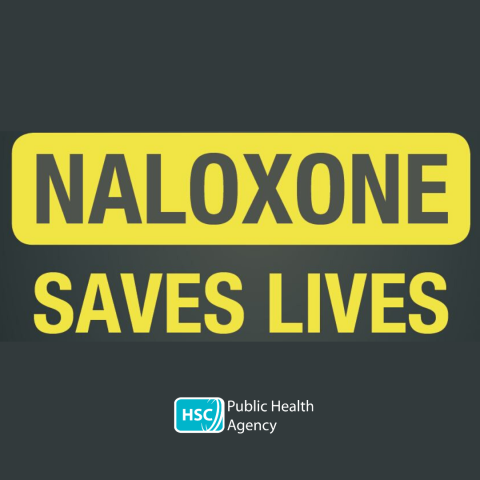Take Home Naloxone reverses more than 230 overdoses

New figures from the Public Health Agency (PHA) show that the Take Home Naloxone programme saw naloxone administered 256 times in 2020-21 and was successful in reversing an opioid overdose in over 90% of cases.
Naloxone, supplied in a small syringe, is injected intramuscularly and can be administered by anyone in an emergency overdose situation.
Since April 2014, Take Home Naloxone has been successful in reversing 829 opiate overdoses. In 2020-21, it reversed 231 overdoses.
The Public Health Agency, with support from the Department of Health, coordinates the Take Home Naloxone programme.
Davis Turkington, Senior Health and Wellbeing Improvement Officer with the PHA, said: “This service provides an important life-saving intervention – each overdose reversal is an occasion when a person could have died, but didn’t.
“While only a very small portion of the population here uses heroin or other opioid drugs, those who do are at a high risk of illness or death.
“It is therefore important that we look at ways that we can reduce the danger that opioid users face. The main risks for people who use opiates are accidental overdose, and the transmission of blood-borne viruses through sharing of injecting equipment.
“We need to ensure we do all we can to lower the risks, such as through providing access to needle exchange services with trained staff, and providing access to the life-saving drug naloxone.
“Addressing these issues also provides opportunities for health service engagement with this hard-to-reach group, which can be used to support them into treatment.”
Naloxone is an opioid antagonist, which temporarily and rapidly reverses the effects of heroin and other opioids. Following overdose by heroin injection, death typically occurs within one to three hours, which is a very limited window of opportunity to intervene, so naloxone can offer an opportunity for a quick response.
Most drug overdose deaths occur in the company of other people, with up to three quarters of overdoses being witnessed by others. Supplying naloxone through the programme and training people within the opioid-using community, their friends and family, and professionals engaged with them, can be an effective lifesaving intervention.
In line with current legislation, the PHA funds Low Threshold Outreach Services to supply naloxone to individuals at risk, and also to anyone who comes into contact with these individuals, such as their families or staff who work in homeless hostels.
Maurice Meehan, Head of Health and Social Wellbeing Improvement (Northern area) at the PHA, added: “The expanded provision of Take Home Naloxone is a key target in the new Department of Health Substance Use Strategy. The PHA will continue to build upon this important evidence-based intervention which has shown to save lives.”
Key stats in 2020-21 Take Home Naloxone report:
- Take Home Naloxone was supplied 1,666 times.
- Packs were used 256 times to attempt to reverse an overdose.
- The patient survived in 90% (231) of cases.
- On more occasions it was males (172) who overdosed. Females overdosed in 72 cases. In 12 cases gender was not recorded.
- In 71 cases use of other drugs besides heroin was reported.
- Other substances taken in addition to heroin were benzodiazepines (43 cases), alcohol (17 cases), pregabalin (15 cases), opioids including fentanyl, codeine, dihydrocodeine and oxycodone (6 cases), cocaine (6 cases), new psychoactive substances (5 cases) and methadone (1 case).
The 2020-21 annual report on the supply and use of Take Home Naloxone can be found at www.pha.site/NaloxoneReports
Ends
Notes to editors:
- During the period between 1 April 2020 and 31 March 2021, Take Home Naloxone was administered on 256 occasions and in 90% of these cases the patient survived. Please note these are numbers of occasions naloxone was used, not the number of unique individuals to whom it was administered.
- The Take Home Naloxone programme has been in operation in Northern Ireland since 2012 and since then 6,132 packs have been supplied.
- The programme is coordinated by the Public Health Agency, with support from the Department of Health. Packs are supplied by staff within individual Health and Social Care Trusts, the Prison Service and voluntary sector drug treatment services. Service User representatives have also played a major role in providing advice, support and training.
- The PHA funds Extern to provide opioid overdose response training (recognising an overdose, CPR and administering Take Home Naloxone), to enable appropriate individuals to provide the training to those at risk.
- Take Home Naloxone packs are funded by the Public Health Agency and supplied through the Low Threshold Outreach Services, Community Addiction Services and the Belfast Inclusion Health Service.
